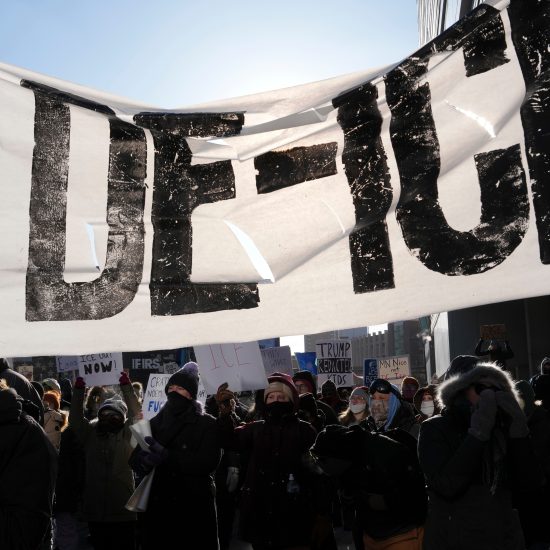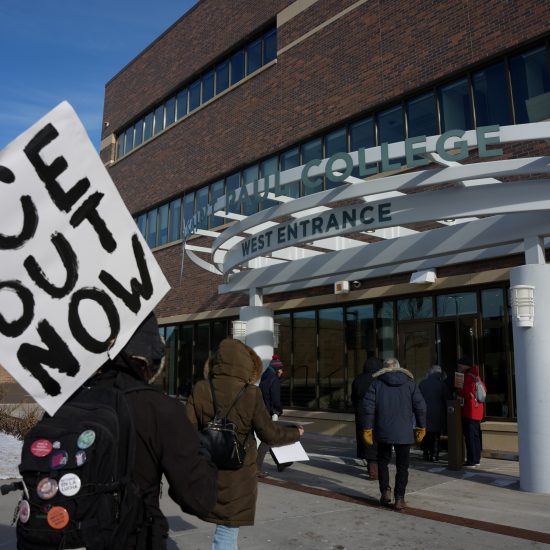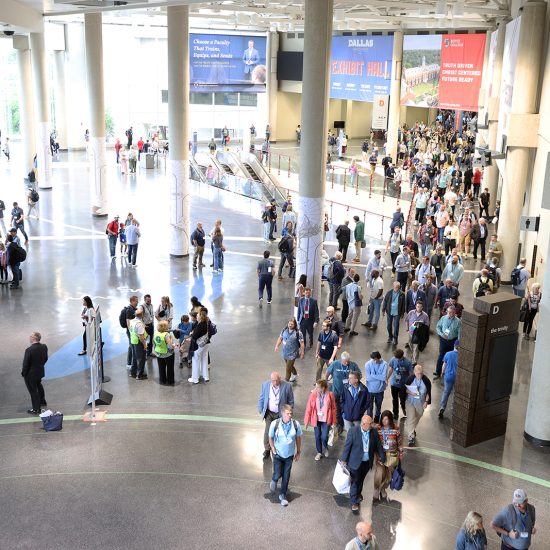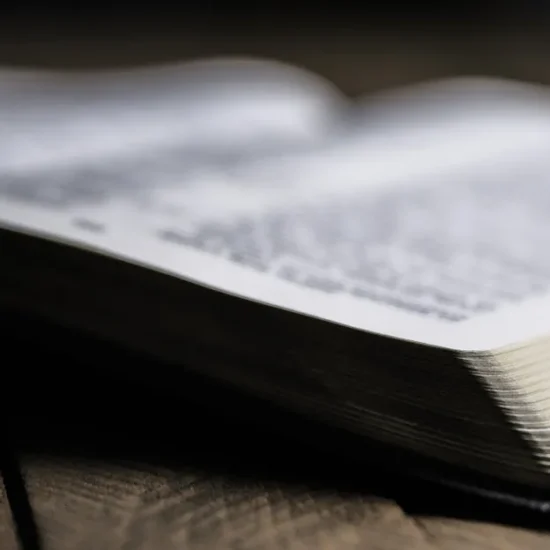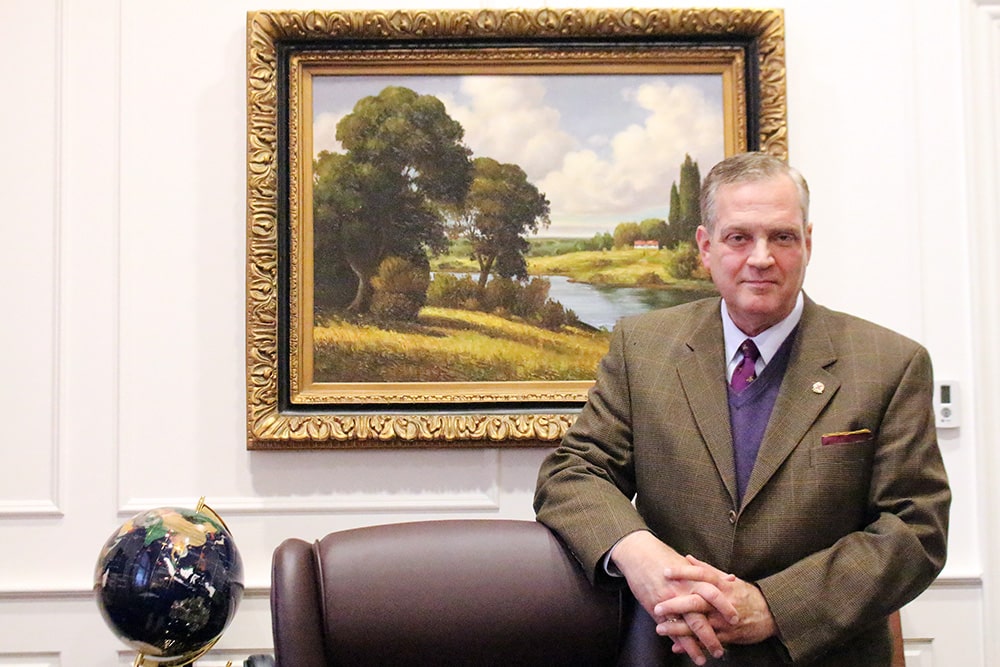
Al Mohler, president of Southern Baptist Theological Seminary in Louisville, Kentucky, says the school should stop using the name of a racist financial supporter, but added he will not remove the names of the slaveholding founders from campus buildings. The comments by Mohler came after some Black Southern Baptists urged SBTS to remove the names of the four founders from buildings.
In remarks on his podcast Monday (June 29), Mohler insisted the four founders, who together enslaved more than 50 Black persons, are honored for their theology. But some Black Baptists say one cannot divorce such theology — or honors of it — from the theological defenses made for slavery and the Confederacy.
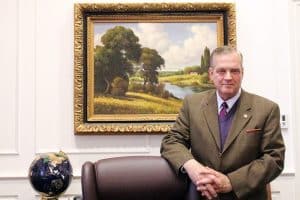
R. Albert Mohler Jr., president of Southern Baptist Theological Seminary in Louisville, Kentucky. (Adelle M. Banks/Religion News Service)
Mohler acknowledged that “the names of slave holders are on major buildings” on SBTS’s campus. He noted, however, there are no statues and that “until recently I’d never thought about the fact that I should be thankful for that truth.”
Looking more broadly to debates about statues of Confederate leaders in the U.S. and slave traders in the United Kingdom, Mohler admitted some changes need to occur.
“Some of these statues and monuments should come down. Some of those names should be removed,” he wrote.
However, Mohler devoted more attention to criticizing protesters who vandalized or tore down statues. He even invoked religious language to describe such acts as “the profanation of some of these statues.”
And when it comes to the names on campus, he sees no reason to change them.
“As president of this institution, it is certainly not my intention to remove those names from either the buildings or from the school. There would be no school and none of these buildings would matter but for the founding vision of those original faculty members,” he added.
Mohler insisted that the names of the four founders weren’t on SBTS buildings because they were enslavers or served in the Confederacy. Rather, he said, the names are there “because of the dedication of their lives and the inculcation of their theology into the lifeblood” of SBTS. As he did in the past while acknowledging the four founders were enslavers, Mohler separated that behavior from their theology he pledges to honor and follow.
“It is explicitly the theological confessional heritage of Boyce and Broadus and Manly in particular that frames the very faith and substance the confessional identity and teaching of the seminary. That’s a commitment made in 1859 that continues emphatically in the present,” Mohler added.
To further justify the campus honors, Mohler praised Boyce for having “channeled his family’s wealth into the survival of this institution” — though Mohler didn’t mention how much of that family wealth came from slavery.
The one name Mohler said he’s willing to remove is that of Joseph Brown, who as Georgia’s governor led the state to join the Confederacy. After the war, he amassed a fortune from mostly-Black convict leasing that scholars have called “slavery by another name.” He saved the school from financial collapse, and served as SBTS trustee board chair from 1883-1894.
As SBTS president, Mohler is the “Joseph Emerson Brown Professor of Christian Theology.” But now he’s willing to drop Brown’s name, arguing the name of “the Confederate Governor of Georgia” is “in a different category altogether” than those of the four founders.
“Insofar as the decision comes down to me as president, in my view, the name of Joseph Emerson Brown is a name that needs to be retired,” Mohler said. “The continuation of that name is a matter of choice. He does not have the significance or the moral weight of those others who were the founders of Southern Seminary.”
Mohler said he remains thankful for Brown saving SBTS, but he hopes the SBTS trustees will take the actions needed to remove the use of Brown’s name in an honorary fashion on campus.
Dwight McKissic, pastor of Cornerstone Baptist Church in Arlington, Texas, who on Juneteenth urged SBTS to remove the names of the founding enslavers from campus, responded to Mohler’s comments in a column provided to Word&Way. McKissic criticized Mohler’s “compartmentalization,” arguing instead that the “faith and fruit are inseparable regarding SBTS founders.” Thus, he said, the “cultural war” over Confederate monuments is “also spiritual warfare.”
“I maintain that men who are white supremacists, Scripture-denying, men-stealing, misogynists, and child abusers cannot be labeled orthodox — as Mohler labels them,” McKissic explained. “You cannot have an orthodox view of soteriology while denying an orthodox view of anthropology. If you have a flawed view of one, you have a false view of the other. These men were not orthodox as Mohler purports. These men were racist and deniers of the very inerrant infallible Word of God that Mohler claims is the reason he still wants to honor them.”
McKissic added that the key question as to whether or not the buildings should bear the names of the founders is: “Can you be orthodox and simultaneously hold to a white supremacy construct, Black inferiority and servitude, misogyny, and the denial of Scripture by practicing slavery and denying women the right to vote within the SBC and secular society solely based on gender?”
But McKissic said he’s not surprised that Mohler is defending the names of the enslavers.
“Given the SBC history, it’s not surprising that Mohler would refuse to deny these kidnapping, men-stealing, child-abusing, Scripture-denying, white supremacist men honor,” McKissic added. “It’s simply the DNA of the SBC for Mohler to cover and protect these men. They separated orthodoxy from orthopraxy in order to justify slavery. Mohler is doing the exact same thing in order to justify not removing the name of these heterodox men.”

Screengrab of Kevin Cosby (bottom left) speaking during a Simmons College of Kentucky Forum July 1, 2020, along with (clockwise from top left) Bill Leonard, Lewis Brogdon, and Jason Crosby.
During an online forum Wednesday (July 1) hosted by Simmons College of Kentucky, a historically-black school in Louisville founded by a formerly enslaved man, two speakers spoke of the need of SBTS to remove the honors to its founders.
Jason Crosby, a pastor at Crescent Hill Baptist Church in Louisville, said that while a statue of Jefferson Davis was recently removed from the rotunda of the Kentucky Capitol and a statue of Confederate John Castleman was recently removed from a roundabout in Louisville, “there’s still a Manly Hall on Lexington Road; there’s still a Boyce College on Lexington Road.”
Arguing that “Boyce and Manly laid the foundation for the likes of Davis and [Robert E.] Lee and others,” Crosby, who is white, added that white Christians “have to get to the theological depth” of the “deep-rooted systemic change that might need to take place.”
Similarly, Kevin Cosby, president of Simmons, recounted that Mohler refused to repent for the school’s slavery legacy and refused to pay biblical reparations from the wealth gained through slavery.
“The citadel of the Confederacy, perhaps, in America today is right there on the campus of Southern Baptist Theological Seminary,” added Cosby, an SBTS graduate.
Despite the comments by Black Baptists and Mohler’s insistence that he won’t remove the names of the founders, during his remarks Monday on the topic, Mohler encouraged white Christians to listen to Black Christians about the meaning of such honors.
“Right now, especially in the United States and especially among American evangelicals, we need to hear our African American brothers and sisters as they speak to us about what these names, statues, monuments, and realities mean to them,” he said. “Among Christians, the only memories worth honoring are shared memories.”


